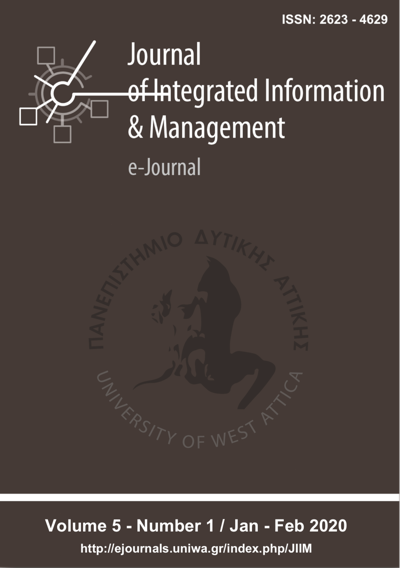Implementing GDPR in Greek Companies - The necessary steps for integration

Abstract
Purpose - The purpose of this paper is to examine the application of the European General Data Protection Regulation (GDPR) to Greek companies. The research investigated the positive and negative impact of the implementation of the Regulations, 18 months after the new legislation went active, regarding technological, organizational and legal issues.
Design/methodology/approach – For this research first step was the study of existing literature. Then, questionnaires were distributed to companies liable to the GDPR for the collection of quantitative data. Finally, a conduct research was made in a company that offers records management services trying to bring the services in compliance with GDPR.
Findings – The above procedures have yielded significant findings regarding the actual implementation of GDPR in the companies and the technological and organizational issues that took place and need to be resolved. The most important outcomes from this research is a) that the companies are in need for more guidance from the competent authorities in the field of data protection, b) there is a significant cost required to implement the changes in organizational structures and c) the important role of the Data Protection Officer (DPO).
Article Details
- How to Cite
-
Kareklas, N., Michalopoulou, Z., & Giannakopoulou, F. (2024). Implementing GDPR in Greek Companies - The necessary steps for integration. Journal of Integrated Information Management, 5(1), 7–12. Retrieved from https://ejournals.epublishing.ekt.gr/index.php/jiim/article/view/37877
- Section
- Research Articles

This work is licensed under a Creative Commons Attribution-NonCommercial 4.0 International License.
Copyright Notice
Authors who publish with JIIM agree to the following terms:
- Authors retain copyright and grant the journal right of first publication with the work simultaneously licensed under a Creative Commons Attribution Non-Commercial License that allows others to share the work with:
- An acknowledgment of the work's authorship and initial publication in this journal.
- Authors are permitted and encouraged to post their work online (preferably in institutional repositories or on their website) prior to and during the submission process, as it can lead to productive exchanges, as well as earlier and greater citation of published work.





